Overview
Artificial Intelligence (AI) is transforming every aspect of our lives and our society, including academic research. The recent emergence of powerful AI systems such as Generative AI signifies the enormous potential of AI to accelerate research, “mass produce” human knowledge, and enable humans to address research questions and engineering challenges that were previously unfathomable. Meanwhile, such potential is still largely speculative and initial successes are still limited in scope. Massive adoption of AI in research will be possible only when we are able to address a multitude of technical and ethical issues as well as ensure infrastructure and skill building. In this symposium, we bring together some of the best minds around the world to share their vision and work, in four themes.
- Speeding Up Research – using AI to automate and accelerate research, such as experimental design optimization and accelerating the workflow.
- The Nature of Creativity in Research – the role of the AI Researcher and the new role of the Human Researcher.
- Trusting the AI Researcher – Upholding research rigor in AI-driven research and ensuring the validation of AI-driven discoveries, and aligning AI-driven discoveries with human values.
- Expanding the Limit of the Human Researcher – using AI to ask previously unfathomable questions in a number of research fields.
The intended audience are researchers and trainees regardless of the specific fields of their research and the focus of their intellectual pursuit, as well as the general public who are curious about AI and its impact on science and humanity.
Schedule: March 18th, 2024
Light morning refreshments available in the Assembly Hall (4th Floor). Arrive early! The first 150 attendees will receive special MIDAS swag.
Program begins promptly at 8:30 AM.
Primer: What is AI?
In this introductory session, Dr. Jagadish, one of the most prominent computer scientists and data scientists in the nation, will give an overview of the rise of AI and the opportunities and harms it brings to science, society and humanity. The goal is to prepare the audience so that they can better understand the presentations in the ensuing two days by some of the best minds of our time on AI.
Opening Remarks by Santa J. Ono
View Opening Session Presentations9:00 am : “Building Frontier AI Systems for Science and the Path to Zettascale” (presented by Rick Stevens)
9:40 am : “On Scaling Laws, Foundation Models and HPC” (presented by Irina Rish)
10:20 am : “The next stage of automated science?” (presented by Robert Murphy)
11:00 am–11:10 am : Break
11:10 am–12:10 pm : Panel discussion with Stevens, Rish, and Murphy (moderated by Liza Levina)
12:10 pm–1:10 pm : Lunch break
View Day 1, Session 1 Presentations1:10 PM : “The Science of Science: Exciting Progress and Future Directions” (presented by Dashun Wang)
1:50 pm : “The Ramanujan Machine: AI-assisted discovery of mathematical conjectures”
2:30 pm : Discussion lead by Colleen Seifert
3:10 pm–3:20 pm : Break
3:20 – 4:20 pm : Panel discussion with Wang, Kaminer and Seifert (Moderated by Chandra Sripada)
View Day 1, Session 2 PresentationsSchedule: March 19th, 2024
Light morning refreshments available in the Assembly Hall (4th Floor).
Program begins promptly at 9:00 AM.
9:00 am : Discussion lead by Yolanda Gil
10:00 am : “Should we Derive or Let the Data Drive? Mutually Substantiated Discovery by Symbiotizing Data-driven Learning and Knowledge-based Reasoning” (presented by Lior Horesh)
11:00 am–11:10 am : Break
11:10 am–12:10 pm : Panel discussion with Gil and Horesh (moderated by Elizabeth Yakel)
12:10 pm–1:10 pm : Lunch break
View Day 2, Session 3 Presentations1:10 PM : “Accelerating Astronomical Discovery: Synergies Between Generative AI, Large Language Models, and Data-Driven Astronomy” (presented by Yuan-Sen Ting)
1:50 pm : “From Biological Intelligence to Artificial General Intelligence and Back: Challenges and Opportunities” (presented by Paul Bogdan)
2:30 pm : “Flourishing Science Commons: Data Science, Open Science, and Knowledge Communities” (presented by Ryan McGranaghan)
3:10 pm–3:20 pm : Break
3:20 – 4:20 pm : Panel discussion with Ting, Bogdan and McGranaghan (Moderated by Mingyan Liu)
View Day 2, Session 4 PresentationsInstructors

H.V. Jagadish, Director, Michigan Institute for Data Science; Edgar F Codd Distinguished University Professor and Bernard A Galler Collegiate Professor of Electrical Engineering and Computer Science, University of Michigan
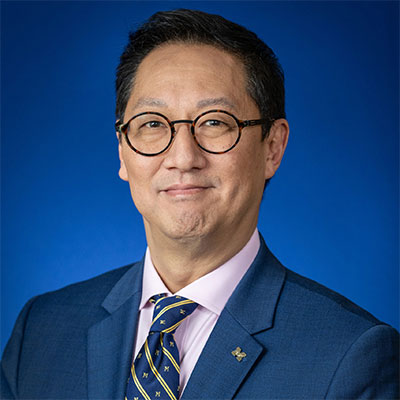
Santa J. Ono, President, University of Michigan; Chairman, University of Michigan Health Board; Professor of Ophthalmology & Visual Science, Microbiology & Immunology, and Molecular, Cellular, & Developmental Biology, University of Michigan
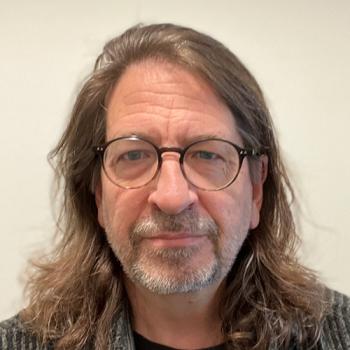
Rick Stevens, Associate Laboratory Director and Argonne Distinguished Fellow, Argonne National Laboratory. Dr. Stevens is a leader of the national initiatives on AI for science and exascale computing.
The successful development of transformative applications of AI for science, medicine and energy research will have a profound impact on the world. The rate of development of AI capabilities continues to accelerate, and the scientific community is becoming increasingly agile in using AI, leading us to anticipate significant changes in how science and engineering goals will be pursued in the future. Frontier AI (the leading edge of AI systems) enables small teams to conduct increasingly complex investigations, accelerating some tasks such as generating hypotheses, writing code, or automating entire scientific campaigns. However, certain challenges remain resistant to AI acceleration such as human-to-human communication, large-scale systems integration, and assessing creative contributions. Taken together these developments signify a shift toward more capital-intensive science, as productivity gains from AI will drive resource allocations to groups that can effectively leverage AI into scientific outputs, while other will lag. In addition, with AI becoming the major driver of innovation in high-performance computing, we also expect major shifts in the computing marketplace over the next decade, we see a growing performance gap between systems designed for traditional scientific computing vs those optimized for large-scale AI such as Large Language Models. In part, as a response to these trends, but also in recognition of the role of government supported research to shape the future research landscape of the U. S. Department of Energy has created the FASST (Frontier AI for Science, Security and Technology) initiative. FASST is a decadal research and infrastructure development initiative aimed at accelerating the creation and deployment of frontier AI systems for science, energy research, national security. I will review the goals of FASST and how we imagine it transforming the research at the national laboratories. Along with FASST, I’ll discuss the goals of the recently established Trillion Parameter Consortium (TPC), whose aim is to foster a community wide effort to accelerate the creation of large-scale generative AI for science. Additionally, I’ll introduce the AuroraGPT project an international collaboration to build a series of multilingual multimodal foundation models for science, that are pretrained on deep domain knowledge to enable them to play key roles in future scientific enterprises.
Rick Stevens is Argonne’s Associate Laboratory Director for the Computing, Environment and Life Sciences (CELS) Directorate and an Argonne Distinguished Fellow. He is also a Professor of Computer Science at the University of Chicago. Stevens is responsible for ongoing research in the computational and computer sciences from high performance computing architecture to the development of tools and methods for bioinformatics, cancer, infectious disease, and other challenges in science and engineering. He has significant responsibility in delivering on the national initiative for exascale computing and developing the U.S. Department of Energy’s (DOE) AI for Science national initiative. Recently, he has focused on developing artificial intelligence methods for a variety of scientific and biomedical challenges.
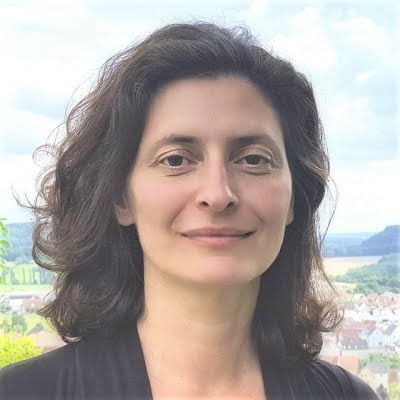
Irina Rish, Professor, Université de Montréal; Core Member of Mila – Quebec Artificial Intelligence Institute; Canada CIFAR AI Chair, Canada Excellence Research Chair (CERC) in Autonomous AI. Dr. Rish is a leader in both academia and industry in building broad and robust AI to align with human values.
The field of AI is advancing at unprecedented speed in the past few years, due to the rise of large-scale, self-supervised pre-trained models (a.k.a. “foundation models”). Impressive few-shot generalization capabilities of such models on a wide range of novel tasks appear to emerge primarily due to scaling the number of model’s parameters, training data and compute resources. Empirical neural scaling laws aim at predicting scaling behaviors of foundation models, and serve as AI “investment tools” that can suggest an optimal allocation of compute resources, and select best-scaling models and algorithms, likely to stand the test-of-time as larger compute resources become available. Moreover, accurate prediction of emerging behaviors in large-scale AI systems is essential from AI Safety perspective.
In this talk, I will present a brief history of neural scaling laws, with the focus on our recent unifying framework of Broken Neural Scaling Laws that generalizes the prior power laws to a wide range of nonlinear, nonmonotonic scaling behaviors observed for various behavioral metrics (capabilities and alignment), on multiple data modalities, architectures, settings. Besides this standard “closed-box” approach to neural scaling, we also look inside the model’s training dynamics (an “open-box” approach) to discover scaling patterns predictive of certain “emergent” behaviors such as “grokking”.
Finally, this talk will provide an overview of open-source foundation models our lab has built and released so far using large-scale INCITE allocation on Summit and Frontier supercomputers, including several 9.6B LLMs trained continually, the first Hindi model Hi-NOLIN, multimodal vision-text model suite Robin, as well as time-series foundation models. I will highlight the continual pre training paradigm that allows to train models on potentially infinite datasets, as well as approaches to AI ethics and multimodal alignment. See our CERC-AAI project page for more details: https://www.irina-lab.ai/projects.
Irina Rish is a Full Professor in the Computer Science and Operations Research department at the Université de Montréal (UdeM) and a core member of Mila – Quebec AI Institute. She holds the Canada CIFAR AI Chair and the Canadian Excellence Research Chair in Autonomous AI. She holds MSc and PhD in AI from University of California, Irvine and MSc in Applied Mathematics from Moscow Gubkin Institute. Dr. Rish’s research focus is on machine learning, neural data analysis and neuroscience-inspired AI.
Her current research interests include continual lifelong learning, optimization algorithms for deep neural networks, sparse modelling and probabilistic inference, dialog generation, biologically plausible reinforcement learning, and dynamical systems approaches to brain imaging analysis. Before joining UdeM and Mila in 2019, she was a research scientist at the IBM T. J. Watson Research Center, where she worked on various projects at the intersection of neuroscience and AI, and led the Neuro-AI challenge. Dr. Rish holds 64 patents, has published over 80 research papers, several book chapters, three edited books, and a monograph on Sparse Modelling.
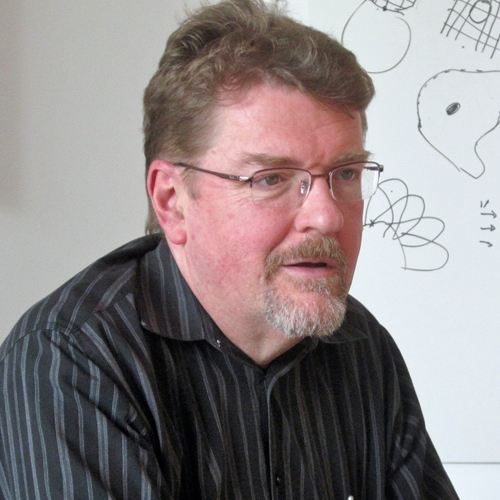
Robert Murphy, Ray and Stephanie Lane Professor of Computational Biology, Carnegie Mellon University. Dr. Murphy is a leading figure in cracking the mystery of biology through automated science.
Many scientific disciplines, including biology, chemistry and materials science, face challenges from the presence of complex systems and the absence of sufficient theory to enable prediction of system behaviors. This led first to application of “passive” machine learning approaches to learn predictive models from existing experimental data, and then to the growth of “active” machine learning approaches that seek to efficiently improve such models by iterative selection of new experiments to perform. The combination of these approaches with laboratory automation to robotically execute chosen experiments is variously termed “automated science” or “self-driving labs”. The active approaches have largely been restricted to one or two independent experimental variables, and their goals are usually either maximizing model accuracy or optimizing particular properties. For biomedical research, they thus do not provide models that can encompass the dozens to thousands of potential independent variables (e.g., proteins, genes, metabolites) that are involved in even relatively small biological systems. Furthermore, with some exceptions, they do not consider which approach to use to acquire new data (e.g., computational simulations vs. laboratory measurements). I will discuss the premise that the next wave of approaches for automated science will need to simultaneously model large numbers of independent variables and be able to assess the relative value of making different types of measurements that may provide information on different subsets of the system with different levels of accuracy.
In this talk, I will present a brief history of neural scaling laws, with the focus on our recent unifying framework of Broken Neural Scaling Laws that generalizes the prior power laws to a wide range of nonlinear, nonmonotonic scaling behaviors observed for various behavioral metrics (capabilities and alignment), on multiple data modalities, architectures, settings. Besides this standard “closed-box” approach to neural scaling, we also look inside the model’s training dynamics (an “open-box” approach) to discover scaling patterns predictive of certain “emergent” behaviors such as “grokking”.
Finally, this talk will provide an overview of open-source foundation models our lab has built and released so far using large-scale INCITE allocation on Summit and Frontier supercomputers, including several 9.6B LLMs trained continually, the first Hindi model Hi-NOLIN, multimodal vision-text model suite Robin, as well as time-series foundation models. I will highlight the continual pre training paradigm that allows to train models on potentially infinite datasets, as well as approaches to AI ethics and multimodal alignment. See our CERC-AAI project page for more details: https://www.irina-lab.ai/projects.
My group’s work combines my interests in cell and computational biology. We apply both experimental and computational methods to the fundamental problem of learning and representing how proteins are organized within eukaryotic cells. For this we particularly use automated microscopy combined with methods from machine learning, pattern recognition and modeling. Much of our recent work focuses on automated learning of generative models of subcellular organization that have the promise to allow information from diverse methodologies to be combined to compactly represent current knowledge and enable predictions about how organization changes during development and disease. A second major focus is on intelligent sampling in very large dimensional experimental spaces, such as in the context of learning the effect of thousands of potential drugs on thousands of potential targets.
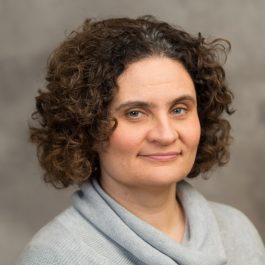
Liza Levina, Department Chair and Vijay Nair Collegiate Professor of Statistics, College of Literature, Science, and the Arts, University of Michigan
Liza Levina is the Vijay Nair Collegiate Professor and Chair of Statistics at the University of Michigan, and affiliated faculty at the Michigan Institute for Data Science and the Center for the Study of Complex Systems. She received her PhD in Statistics from UC Berkeley in 2002, and has been at the University of Michigan since. Her research interests include statistical inference in high dimensions, statistical network analysis, and applications to imaging, especially in neuroscience. She is a Fellow of the American Statistical Association and the Institute of Mathematical Statistics, and a Web of Science Highly Cited Researcher.
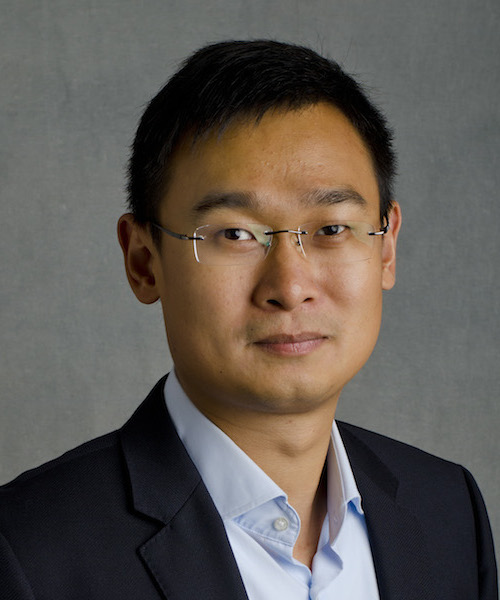
Dashun Wang, Professor of Management & Organizations, Kellogg School of Management, Northwestern University; Director, Center for Science of Science and Innovation (CSSI) — Dr. Wang is one of the most prominent scholars of “the science of science” including researching the impact of AI on scientific research.
The increasing availability of large-scale datasets that trace the entirety of the scientific enterprise, have created an unprecedented opportunity to explore scientific production and reward. Parallel developments in data science, network science, and artificial intelligence offer us powerful tools and techniques to make sense of these millions of data points. Together, they tell a complex yet insightful story about how scientific careers unfold, how collaborations contribute to discovery, and how scientific progress emerges through a combination of multiple interconnected factors. These opportunities—and challenges that come with them—have fueled the emergence of a multidisciplinary community of scientists that are united by their goals of understanding science and innovation. These practitioners of the science of science use the scientific methods to study themselves, examine projects that work as well as those that fail, quantify the patterns that characterize discovery and invention, and offer lessons to improve science as a whole. In this talk, I’ll highlight some examples of research in this area, hoping to illustrate the promise of science of science as well as its limitations.
Dashun Wang is a Professor of Management and Organizations at the Kellogg School of Management, and the McCormick School of Engineering, at Northwestern University. At Kellogg, he is the Founding Director of the Center for Science of Science and Innovation (CSSI). He is also a core faculty at the Northwestern Institute on Complex Systems (NICO).
At CSSI, Prof. Dashun Wang leads a group of highly interdisciplinary researchers who are extremely passionate about data. His current research focus is on Science of Science, a quest to turn the scientific methods and curiosities upon ourselves, hoping to use and develop tools from complexity sciences and artificial intelligence to broadly explore the opportunities and promises offered by the recent data explosion in science.
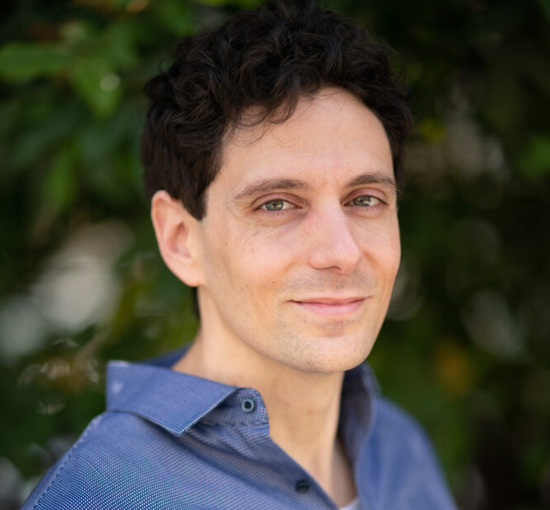
Ido Kaminer, Professor, Electrical and Computer Engineering, Technion – Israel Institute of Technology. Dr. Kaminer is a “Schmidt Futures Polymath”. He created the new field of free-electron quantum optics, and conceived the Ramanujan Machine project, developing the first algorithms that generate conjectures for mathematical constants.
Ido is a Professor at the Technion. In his Ph.D. research, Ido discovered new classes of accelerating beams in nonlinear optics and electromagnetism. He was the first Israeli ever to win an APS award for his Ph.D. thesis. As a postdoc at MIT, he established the foundations of macroscopic quantum electrodynamics (MQED) for photonic quasiparticles and used it to find a way to enable forbidden electronic transitions in atoms. As a faculty member, Ido created a paradigm shift in the understanding of free-electron radiation, connecting it to the field of quantum optics. He performed the first experiment on free-electron interaction with quantum light, demonstrating that the quantum statistics of photons can be imprinted on the electron. He studies the frontiers of photonics, quantum optics, and laser-driven electron acceleration, by developing novel theoretical and experimental methods. He is head of the AdQuanta Lab at the Technion, whose research established the foundations of quantum electrodynamics with photonic quasiparticles.
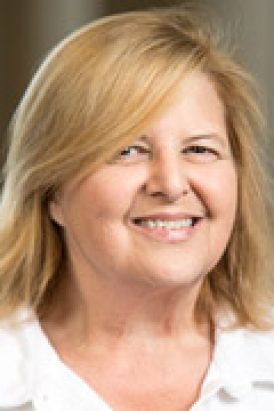
Colleen Seifert, Arthur F. Thurnau Professor of Psychology, University of Michigan. Dr. Seifert is a leading expert on the cognitive basis of creativity and its improvement, which just got more intriguing with AI as our rival and assistant.
Dr. Seifert’s research interests lie in complex human cognition, including memory, learning, problem solving, and creativity. With her collaborators, she is currently investigating cognitive accounts of creative thinking, and ways to improve the creative process. She is invested in improving learning and pedagogy in design, higher education, and applications in the public interest..
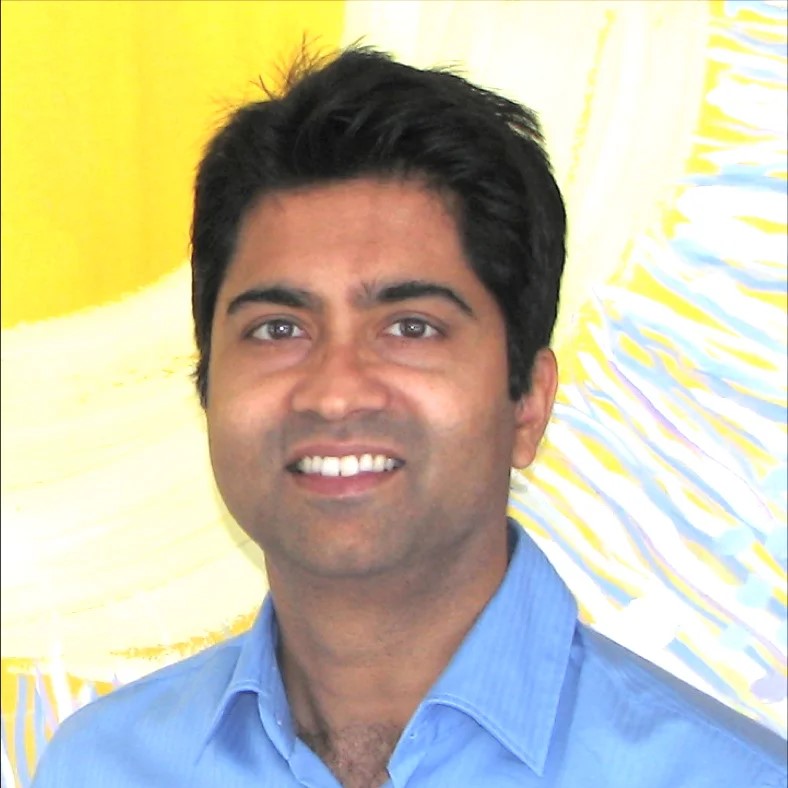
Chandra Sripada, Theophile Raphael Research Professor, Professor of Philosophy, Professor of Psychiatry, and Director of the Weinberg Institute for Cognitive Science, University of Michigan
Dr. Seifert’s research interests lie in complex human cognition, including memory, learning, problem solving, and creativity. With her collaborators, she is currently investigating cognitive accounts of creative thinking, and ways to improve the creative process. She is invested in improving learning and pedagogy in design, higher education, and applications in the public interest..
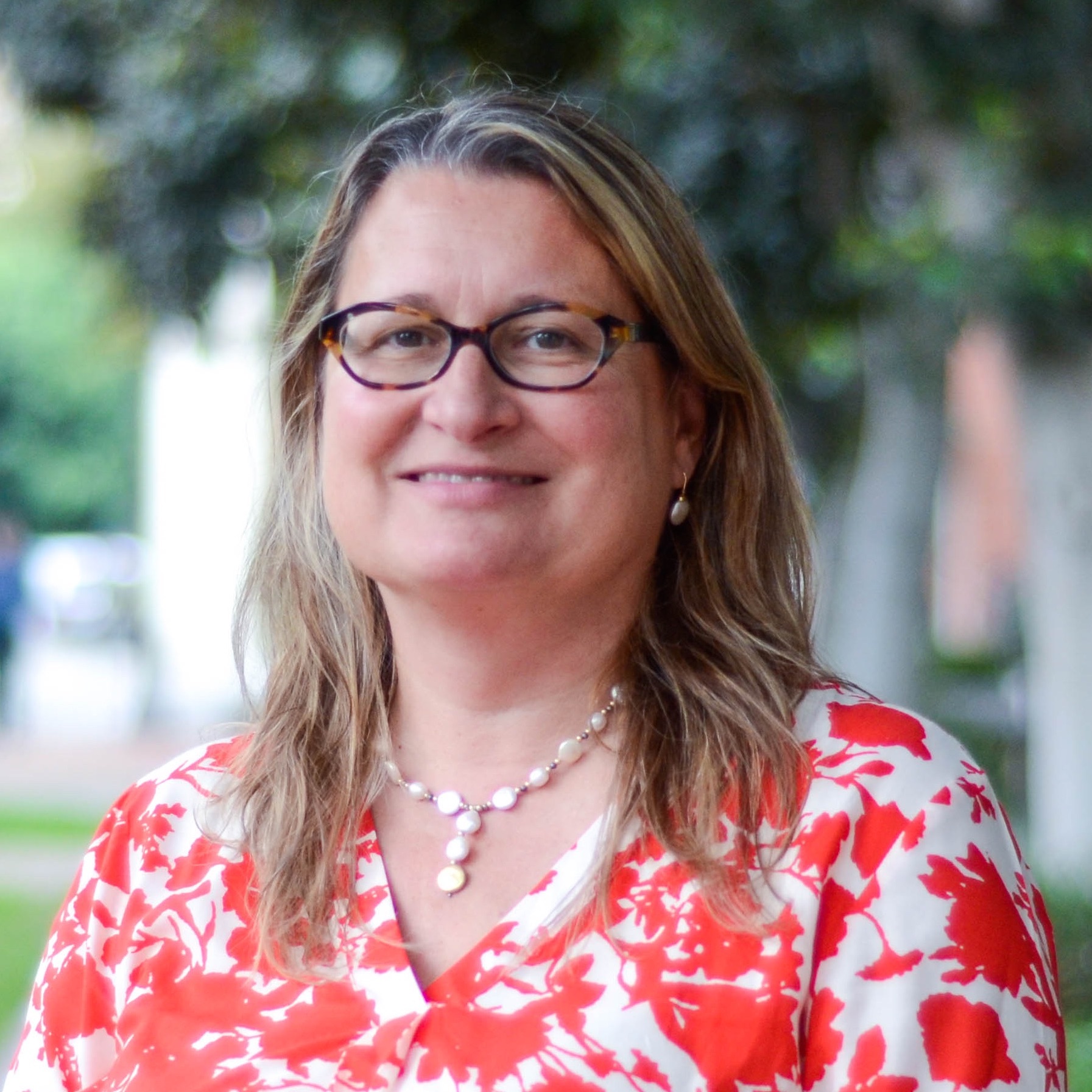
Yolanda Gil, Research Professor of Computer Science and Spatial Sciences and Principal Scientist at University of Southern California Information Sciences Institute — Dr. Gil is one of the world’s leaders on intelligent systems for knowledge capture and discovery.
Senior Director for Strategic Artificial Intelligence and Data Science Initiatives at the Information Sciences Institute of the University of Southern California, and Research Professor in Computer Science and in Spatial Sciences. She is also Director of Data Science programs and of the USC Center for Knowledge-Powered Interdisciplinary Data Science. She received her M.S. and Ph. D. degrees in Computer Science from Carnegie Mellon University, with a focus on artificial intelligence. Her research is on intelligent interfaces for knowledge capture and discovery, which she investigates in a variety of projects concerning scientific discovery, knowledge-based planning and problem solving, information analysis and assessment of trust, semantic annotation and metadata, and community-wide development of knowledge bases.

Lior Horesh, Senior Manager, Mathematics and Theoretical Computer Science, IBM Research — Addressing the biggest challenges in AI research with a principled mathematical approach.
The scientific method has been transformative to humankind. However, there are signs that despite great investment in the area, scientific discovery is approaching a state of stagnation. In the context of scientific discovery, a fundamental problem is to explain natural phenomena in a manner consistent with both (noisy) experimental data, and a body of (possibly inexact and incomplete) background knowledge about the laws of the universe. Historically, models were manually derived in a first-principles deductive fashion. The first-principles approach often offers the derivation of interpretable symbolic models of remarkable levels of universality while being substantiated by little data. Nonetheless, derivation of such models is time-consuming and relies heavily upon domain expertise. Conversely, with the rising pervasiveness of statistical AI and data-driven approaches, automated, rapid construction and deployment of models has become a reality. Many data-driven modeling techniques demonstrate remarkable scalability due to their reliance upon predetermined, exploitable model form (functional form) structures. Such structures, entail non-interpretable models, demand Big Data for training, and provide limited predictive power for out-of-set instances. In this lecture, we will learn about the two breeds of discovery frameworks, explore recent attempts to bridge the divide between them, as to enable (with some optimism) a unified discovery of fundamental laws of nature at scale.
Dr. Lior Horesh is a Principal Research Scientist and a Senior Manager of the Mathematics and Theoretical Computer Science group the MIT-IBM Research Lab. His group’s mission is to approach some of the big challenges the field of AI is facing, from a principled mathematical angle. This involves conceiving and bringing in state-of-the-art mathematical theories, algorithms and analysis tools, in hope of advancing fundamentally generalizability, scalability and interpretability of AI. Additionally, Dr. Horesh holds an adjunct Associate Professor position at the Computer Science department of Columbia University where he teaches graduate level Advanced Machine Learning and Quantum Computing courses. Dr. Horesh Received his Ph.D. in 2006 from UCL and joined IBM in 2009.
Dr. Horesh’s research work focuses on algorithmic and theoretical aspects of tensor algebra, numerical analysis, simulation of complex systems, inverse problems, non-linear optimization, experimental design, machine learning, quantum computing and the interplay between first principles models and AI in the context of symbolic scientific discovery.
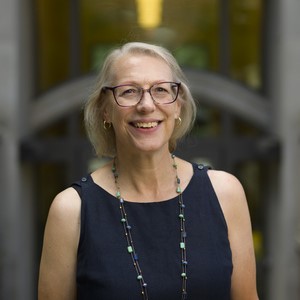
Elizabeth Yakel, C. Olivia Frost Collegiate Professor of Information, Professor of Information, School of Information and Faculty Associate, Inter-University Consortium for Political and Social Research, Institute for Social Research, University of Michigan
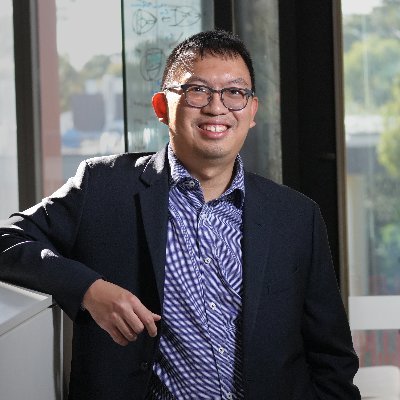
Yuan-Sen Ting, Associate Professor in Astrophysics, The Ohio State University; Associate Professor in Astrophysics and Computer Science, Australian National University — Dr. Ting is a pioneer in using AI to conduct original research in astronomy.
The era of data-driven astronomy presents researchers with an unprecedented volume of data, comprising billions of images and tens of millions of spectra. This abundance of information prompts critical questions about expediting astrophysical discoveries, uncovering previously undetected celestial phenomena, and deciphering the intricate physics governing the Universe. In this presentation, we explore the intersection of artificial intelligence and astronomy, aiming to bridge existing gaps by harnessing the synergies between these domains. We highlight the transformative potential of generative AI in finding interesting unknown celestial phenomena as well as tackling complex, non-linear inference problems that have traditionally been considered intractable, offering an alternative to conventional Bayesian inference methods. Moreover, we will introduce our work on developing a Large Language Model (LLM) specifically tailored for astronomical research. This initiative leverages cutting-edge advancements in LLM technology to facilitate hypothesis generation and accelerate discoveries, laying the foundation for the realization of a fully integrated AI Astronomer.
Dr. Yuan-Sen Ting serves as an Associate Professor at the Australian National University, where he contributes to both the astronomy and computer science departments. He also holds an Associate Professorship in astronomy at The Ohio State University. His research primarily centers on employing machine learning to enhance statistical methods, especially when working with extensive astronomical datasets.
His efforts in integrating AI with science have been recognized, leading to him being named a “Future Leader” by the Association of Universities for Research in Astronomy and being a recipient of the CCAPP Price Prize. Recently, the Australian Research Council DECRA fellowship was conferred upon him after his association with the Australian National University.
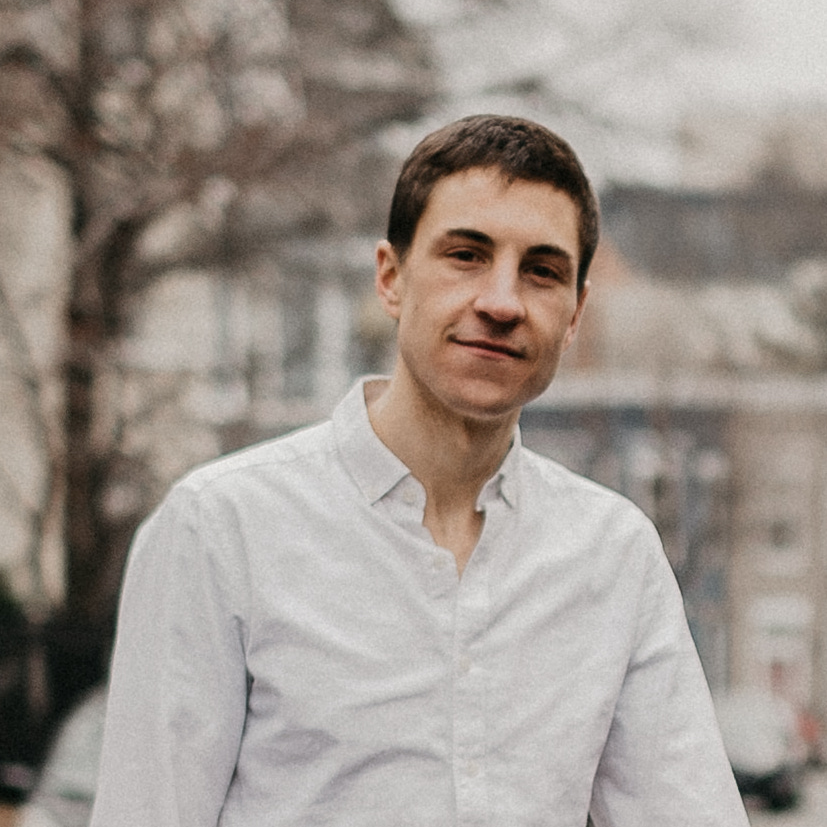
Ryan McGranaghan, Principal Data Scientist / Aerospace Engineering Scientist, NASA Jet Propulsion Laboratory. Creating and cultivating transdisciplinary and trans-community connections for the sake of scientific discovery and flourishing.
What does flourishing look like for scientists, science communities, and society? Certainly it involves pushing the frontiers of scientific discovery, frontiers that now exist at the intersection between disciplines and that require new approaches to science and collaboration. These approaches are emerging from data science, open science, and social science, while we as scientists, engineers, and society are in the midst of understanding how they relate to one another.
I am a senior Data Scientist at the NASA Jet Propulsion Laboratory, where I work with the Machine Learning and Instrument Autonomy (MLIA) group to apply data science techniques robustly and responsibly to the Earth and Space Sciences, to cultivate cross-NASA Center collaborations, and to explore more cohesive and plural scientific communities. I am also a core team member for the NASA Transformation to Open Science (TOPS) initiative, improving the accessibility, inclusivity, and reproducibility of science.
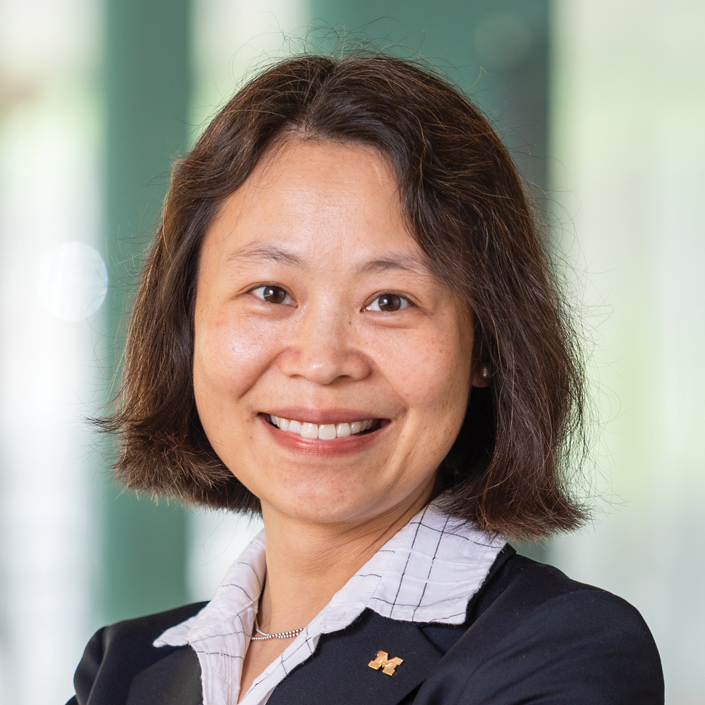
Mingyan Liu, Alice L Hunt Collegiate Professor of Engineering, Associate Dean for Academic Affairs and Professor of Electrical Engineering and Computer Science, College of Engineering, University of Michigan
Organizer
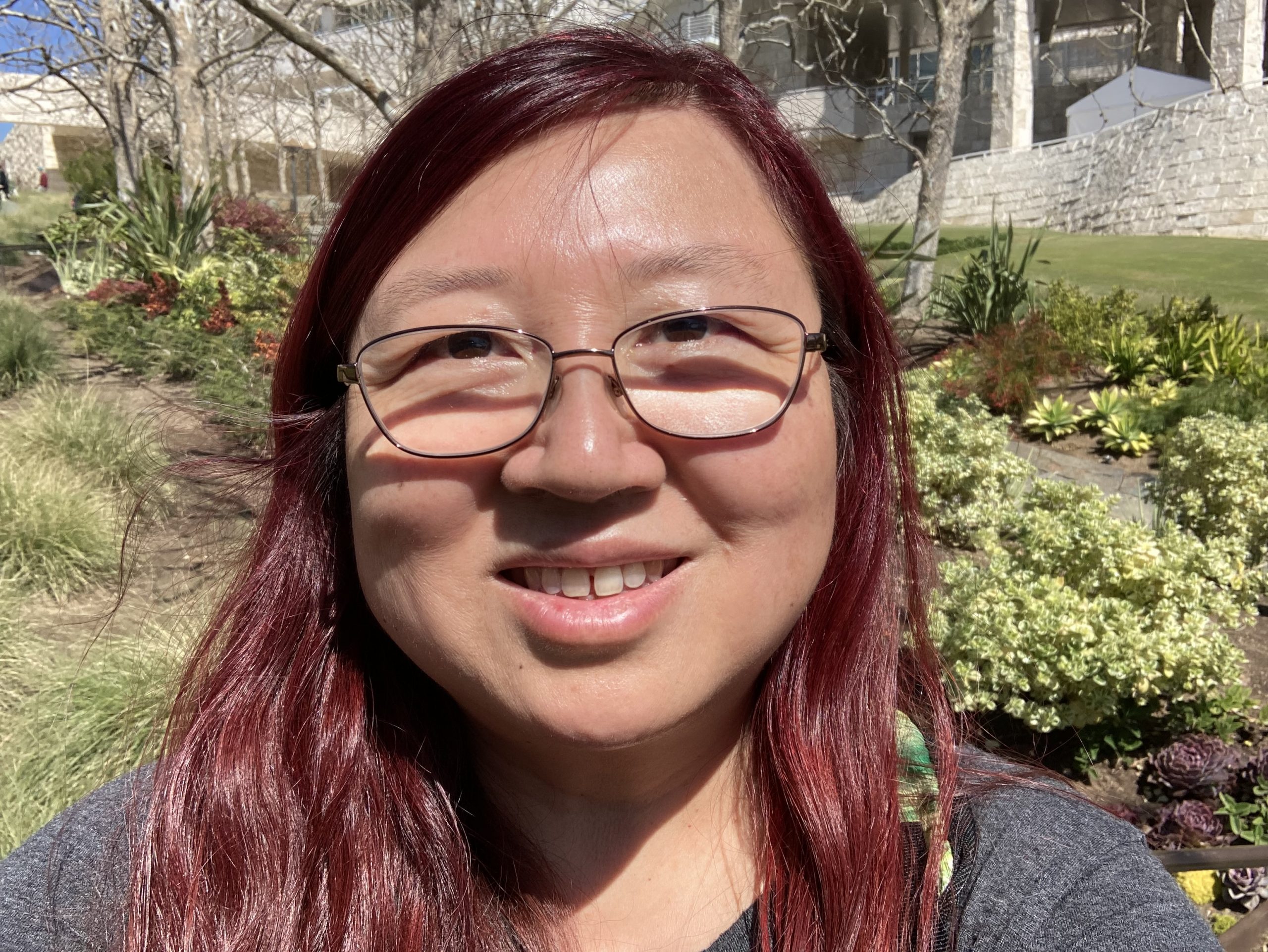
Jing Liu, Executive Director, Michigan Institute for Data Science
Facility Info
- Rackham Graduate School: 915 E. Washington St., Ann Arbor MI 48109
- Parking – INFO
- There are a limited number of metered parking spaces on Washington Street in front of the building, including an accessible space.
- Driving Directions
- There is an accessible entrance in front of the building. A ramp, leading to power doors, is located to the left of the stairs at the South (main) entrance.
- All programming will be on the 4th floor, accessible via elevators to the east or west side of the building.
- Accessible men’s restroom (4012M) and women’s restroom (4512W) available on the 4th floor. Accessible, gender-inclusive restrooms available on the 1st floor (1514T) and the 3rd floor (3132T & 3134T).
- The Amphitheatre has limited accessible seating via the central, north entrance.
- Drinking fountains are available on the main floor lobby, near the restrooms.
- No food or drink is allowed in the Amphitheatre.
- Standing room is not allowed in the Amphitheatre.
- We are not able to offer a hybrid option at this time for remote participants. Program sessions will be recorded and made available after the event. Please allow up to 2 weeks for recordings to be made available on the event page.
- Please be aware that this is a fragrance-free event. We kindly request that attendees refrain from wearing scented products such as perfumes/colognes, hair products, cosmetics, and scented lotions while attending this event.
If there is an accommodation you would like to discuss with program staff, please send us an email at [email protected].